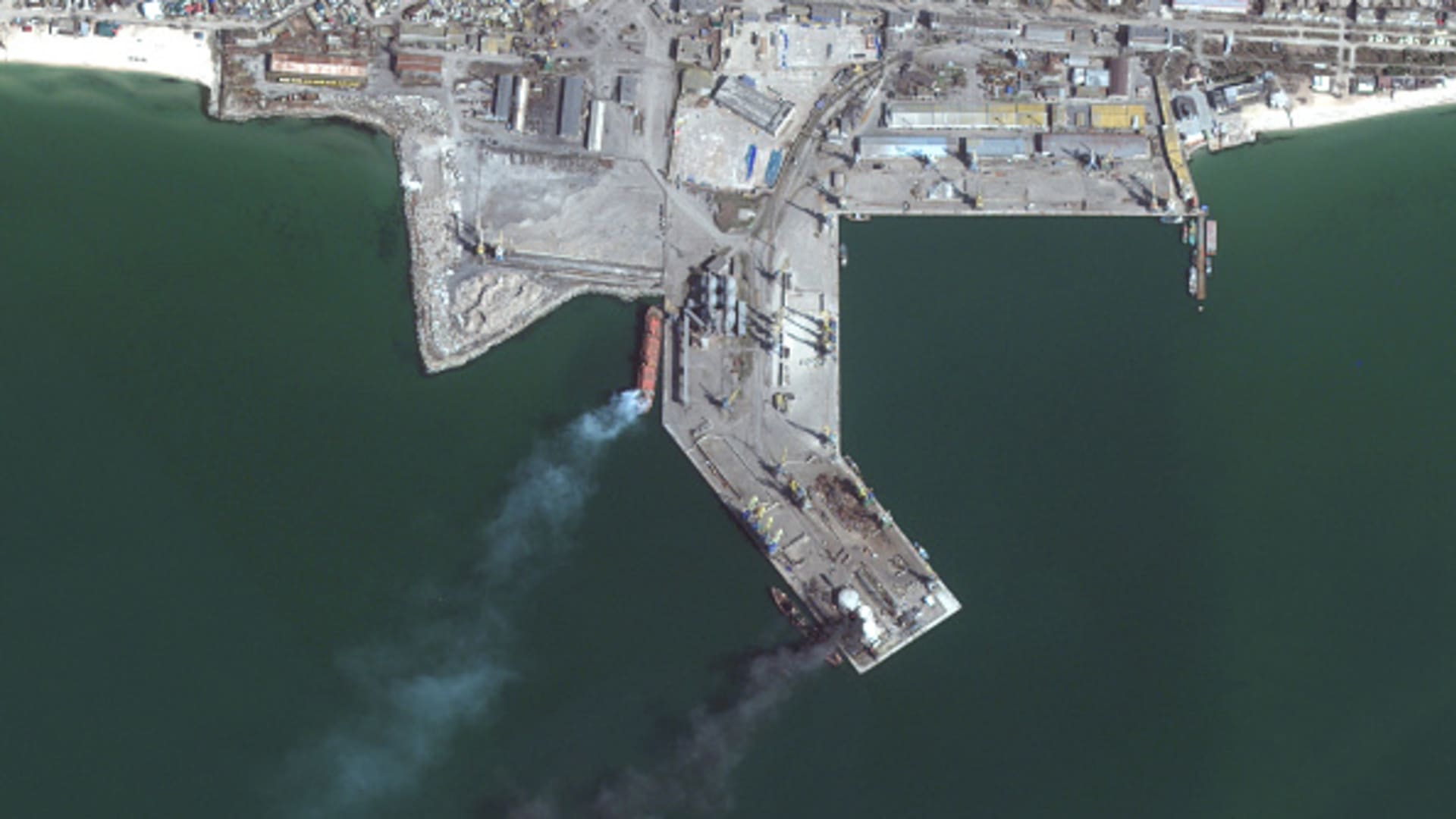Satellite imagery firms Maxar, Planet and BlackSky awarded 'billions of dollars' in government contracts
The National Reconnaissance Office announced contracts worth billions over the next decade to satellite imagery companies Maxar, Planet and BlackSky.

Maxar collected new satellite imagery of the southern Ukrainian port city of Berdyansk that reveals a Russian Alligator-class landing ship that is burned and partially submerged near one of the ports loading/unloading quays.
Maxar Technologies | Getty Images
The National Reconnaissance Office on Wednesday announced contracts worth "billions of dollars" over the next decade to a trio of satellite imagery companies: Maxar, Planet and BlackSky.
Maxar, in a securities filing, said its 10-year EOCL contract is worth up to $3.24 billion – with a five year base contract of $1.5 billion and optional contracts worth up to $1.74 billion.
NRO touted the contracts as "a historic expansion" of its acquisition strategy, noting that the increasing availability of commercial companies' imagery "increases our resilience and enables an integrated approach" to national security. The NRO is the U.S. agency that manages a breadth of satellite intelligence capabilities, including operating its own classified satellites.
BlackSky shares jumped as much as 69% in trading while Planet's rose 10% and Maxar's climbed 14%, from the stocks' previous closes of $1.18 a share, $5.02 a share, and $24.48 a share, respectively.
An image from one of the company's satellites shows Lower Manhattan in New York City.
Planet
The NRO award comes under its Electro-Optical Commercial Layer, or EOCL, program, which the intelligence agency says will support over half-a-million federal users over the next decade.
The EOCL deal has been long-awaited, with Maxar previously serving as the NRO's sole provider of commercially-acquired satellite imagery. While Maxar may be losing a lucrative monopoly, Wall Street analysts do not expect the new competition to hurt the company – with the total addressable market for satellite imagery having grown.

 Kass
Kass 




























.jpg)

